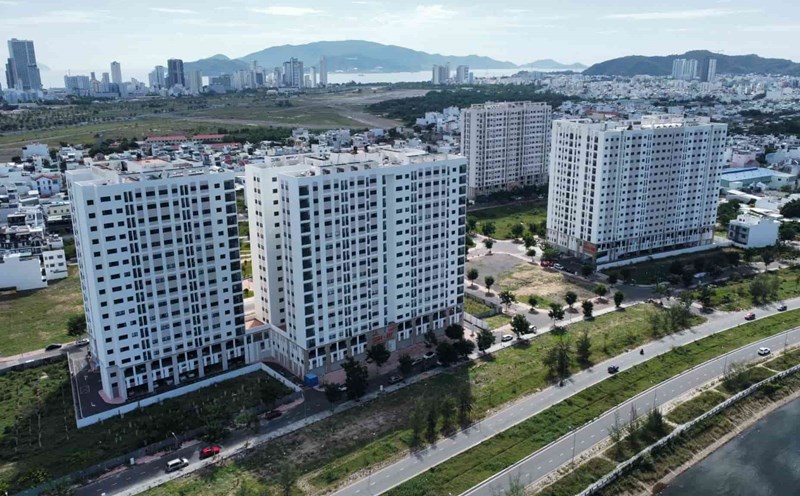According to current regulations, one of the conditions for people to buy social housing is an income of no more than 15 million VND/month (for single people) and no more than 30 million VND/month (for husband and wife).
Talking to Lao Dong, Mr. Tran Duc Nam (Phu Tho) said that his average monthly income is about 17 million VND. With his current accumulation, he cannot afford to buy a commercial apartment worth 2 - 3 billion VND in Hanoi. However, due to exceeding the maximum income according to regulations, he is not eligible to buy social housing.
Mr. Nguyen Quy Manh (29 years old, from Hung Yen), working in the media sector in Hanoi, has an average income of about 16.5 million VND/month. Although he is renting a room and needs to buy a house to stabilize his housing, he is not eligible to participate in the social housing program because his income exceeds the prescribed threshold.
"I did not have enough money to buy a commercial apartment, but when I researched social housing, I was informed that I was not eligible for consideration because my income exceeded 15 million VND/month" - Mr. Manh shared.
He said that he is single, unmarried, and has to balance living expenses and savings. With his current income, he cannot afford to borrow from banks to buy commercial housing, while he cannot access social housing because it exceeds income standards.
The case of Mr. Nam and Mr. Manh is one of the examples showing that the line between sufficient and insufficient income in the current housing policy can make it difficult for a group of young workers to access stable housing in urban areas.
Mr. Ha Quang Hung - Deputy Director of the Department of Housing and Real Estate Market Management (Ministry of Construction) - said that a recent survey of the real estate market shows that young people aged 22 to 40 are gradually becoming the main customer group in the housing market, replacing the middle-aged group.
The demand for housing ownership among young people in Vietnam is at an unprecedented level, both in terms of quantity and proportion in the buyer structure. However, the increase in income has not kept up with the increase in housing prices, causing the actual ownership of the majority of young people to be very limited. To buy an average 70m2 apartment with a price of 3 - 4 billion VND in a large city, young people need to accumulate for about 20 - 25 years. The rate of housing prices compared to current income in Vietnam is in a very high group, meaning it is very difficult to access" - Mr. Hung shared.
The current housing market mainly consists of two main types: commercial housing (mainly for sale) and social housing (selling, renting, buying, leasing). Meanwhile, models such as long-term leasing or flexible leasing - which may be suitable for young people who are just starting a business - are lacking.
He also said that young people face many barriers in personal finance and credit. Banks may be willing to lend, but commercial interest rates are still high, while the loan term is not long enough compared to actual needs.
Only when there are preferential loan packages with fixed interest rates of 5 - 6% in the initial stage will young people dare to think about buying a house. They really need loans for 20-30 years to reduce the pressure of paying off monthly debts" - Mr. Hung emphasized.
Sharing the same view, Ms. Cao Thi Thanh Huong - Senior Manager, Consulting and Research Department of Savills - said that loan packages should be designed with a term of 20 to 30 years, corresponding to the entire labor cycle of borrowers. This helps young people reduce the burden of debt repayment and have more conditions to access housing.
According to Ms. Huong, the credit package for young people is not only a financial tool, but also the "key" to solving the problem of settling down and stabilizing society in the long term. To do that, it is necessary to have synchronous coordination between the State, banks and businesses.











